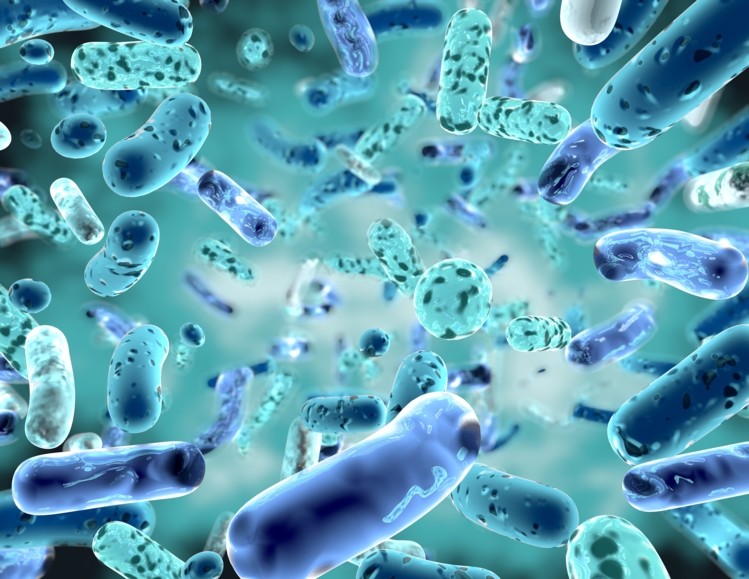With a hefty body of science to support the general immune health benefits of probiotics, suppliers of the beneficial microorganisms are also reporting rises in demand, several leading suppliers told NutraIngredients-USA that sales have exceeded expectations.
“We are indeed seeing a significant increase in order rates that reached double-digit percentages over expectations, for both our probiotic and enzyme products,” said Scott Ravech, CEO of Deerland Probiotics & Enzymes.
Putting a figure on it, Isabelle Champié, Sales & Marketing Director, Lallemand Health Solutions, said that probiotic demand has increased everywhere by 15% to 20% as compared to the months of February and March last year.
But Champié sounded a note of caution as the year moves forward: “The forecast for the spring months (April and May) is that there will be a downward slope of around 5 to 10% in probiotic sales versus 2019, as lockdown is reducing in-store traffic,” she said.
“However, as customers are still looking for natural solutions to support their natural defenses, they are considering probiotic supplement as a priority purchase. The probiotic market is less badly hit than other markets for less essential goods. Plus, there is an increasing trend of customers purchasing probiotic online and taking advantage of home deliveries.”
Indeed, Wisconsin-based UAS Labs added that within the probiotic industry, there is a strong appreciation for the connection between probiotics and immune health. “We believe consumers are gradually coming to understand this connection between the gut and our immune system, so they are looking to us for extra support,” said Kevin Mehring, the company’s President and CEO.
“Of course, probiotics are an important component in many immune-focused products (including those that contain other actives to support the immune response) and this is driving demand as well.”
Another company told us that it’s too soon to tell how much demand is changing for the foreseeable future, but customers have been pulling orders in by three to four weeks to refill pipelines due to demand.
Domestic vs international
The US and Canada are home to sizeable producers of probiotic ingredients and domestic supply has been unaffected for the like of UAS Labs, said Mehring.
One industry source told us that they are experiencing delays of up to four weeks due to freight in international supply, but “most supplies are not impacted dramatically at this point”.
Ravech told us that Deerland began implementing a forward purchasing plan to pre-buy all applicable raw materials and PPE in mid-March to keep the supply chain flowing both domestically and internationally.
“We have worked with our suppliers to ensure we have adequate safety stock levels, both in our facilities and in their warehouses. To date, we have not seen any disruption in exporting our products internationally,” he said.
Lallemand, which has production plants in both North America and in Europe, is continuing to serve both regions with deliveries for most products going via road. Champié said that the company is still using air shipments to other markets, but costs have heavily increased since most of the air freight companies have drastically reduced their flight schedules.
Changing practices
All of the companies we spoke to reported to putting additional safety protocols in place for their businesses. Those include allowing office staff who are able to perform their duties from home to do so, minimizing interactions between employees in production and laboratories, additional hand washing/ hand-sanitizing stations throughout the facilities and restricting all non-essential visitors from the facility. In addition, business travel and gatherings have been postponed until further notice.
Lallemand’s Champié added that to ensure security of the supply chain, the company has a plan in place including designation of specific teams to ensure the continuation of critical activities.
“A contingency plan is in place to ensure continuous operations in the production plants in order to meet previously agreed lead-times. LHS has secured additional inventory, covering a safety stock to prevent and avoid production disruption,” she said.
UAS Labs is also having onsite team members pass through a thermal temperature scanner before each shift, while essential contractors are asked to complete a health form questionnaire and also pass through a thermal temperature scanner before entering, said Jenna Nelson, UAS Director of Marketing.
Outlook
All of these measures should ensure that the companies can continue to function efficiently during the coronavirus pandemic, but what do the next three to six months look like for them?
UAS Labs said it expects its supply to remain as strong as it is today, while Deerland’s Ravech said he doesn’t “expect to experience any significant disruption in our ability to supply our customers with probiotic and enzyme-based products and in fact, I expect continued heightened consumer demand for dietary supplement products into the foreseeable future.”
Dietary supplement brands should prepare for sporadic shortages across the portfolio, said one source. “As China continues to ramp up and essential businesses run around the globe, we think tightness will ease over the next 3-6 months,” said the source. “European supply is the most uncertain, particularly products from Italy.”
The source added that while the supply base is anxious to resume normal operations and has not slowed dramatically overall, however some loss of output and the freight delays since the COVID 19 pandemic will start to create supply gaps.
Deerland’s Ravech added that, once we get past this crisis, supplement use may continue to remain strong.
“I believe that with so many consumers turning to dietary supplements to help them stay healthier during this difficult time, that when this crisis is behind us, more consumers will permanently include supplements in their daily routine and will shift from the passive use of supplements (example: taking immune support products when they are not feeling well) to a more proactive/prevention protocol.”
Fuente: NutraIngredients

